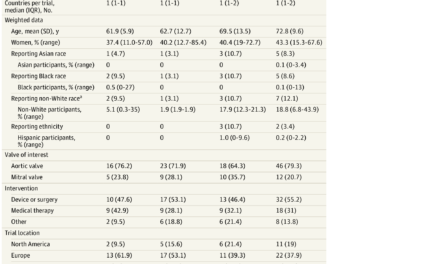Immunotherapy is a recent addition to the arsenal of weapons used against cancer.
A Savannah area oncologist said immunology drugs have been particularly useful in the treatment of triple-negative breast cancer, or TNBC, one of the most dangerous and aggressive forms of breast cancer that accounts for as much as 20% of diagnoses.
That makes immunotherapy drugs particularly impactful for our area, because TNBC occurs at a higher rate among Black and Latino women. More than 48% of Chatham County’s population is Black (41.3%) or Hispanic (7%), according to U.S. Census data.
Healthcare disparities can be significant. The cancer info site breastcancer.org quotes a Journal of the American Medical Association (JAMA) Oncology report from 2021 that found Black women were 28% more likely to die from TNBC than white women.

“These drugs really have changed the face of oncology more than anything else in my tenure,” said Dr. Mark Taylor, who has practiced medicine with Savannah’s Summit Cancer Care since completing his hematology/oncology fellowship in 2002.
Immunotherapy differs fundamentally from chemotherapy in how it works, but patients and their families can easily get confused about which is which because both are medicines administered via an IV.
“I tell patients that in 2023 we have three sort of broad buckets to pick from. (Those are) traditional chemo, which is ‘if it moves, kill it’; the next bucket is targeted therapy, which is drugs that go after a specific kind of cell (with no huge role in breast cancer); and immunotherapy, which is anything that gets the immune system to do the heavy lifting,” Taylor said. “There are some that turn off the brakes on the immune system (and) some that make it angry and get it riled up. What these drugs do is they prevent the cancer from hiding from the immune system.”
He goes on to explain that our immune system is programmed to attack abnormalities or invaders, not normal cells, but some cancer cells are capable of masquerading as normal.
Taylor’s explanation to new patients varies according to their age, depending on what stories they are likely to be familiar with from their childhoods. He compares immunotherapy’s action to ripping off Harry Potter’s invisibility cloak for younger patients or to uncloaking a “Star Trek” Klingon warship for older ones.
When it comes to immunotherapy in breast cancer treatment, Taylor is basically talking about a drug named pembrolizumab. It’s brand name is Keytruda.
The Keytruda story began with its first FDA approval in 2014 for advanced melanoma. That list has expanded over the past nine years to 16 different types of cancer, among them lung cancer, Hodgkin’s lymphoma, and both high-risk early-stage TNBC and advanced TNBC.
It’s hard to describe a “typical” treatment regimen for breast cancer, which occurs in different forms, each with various stages. But here’s how Taylor lays out a standard program for a TNBC patient: first, chemo in combination with immunotherapy to shrink initial tumors, followed by surgery and then by a course of immunotherapy alone. Pembrolizumab is given by infusion (a slow IV) in a clinical setting at anywhere from three- to six-week intervals. Treatment may go on for as much as two years, and is swapped out with careful monitoring if scans continue to clear.
The drug simply hasn’t been in use long enough to give a definitive picture of resulting long-term survival, Taylor says.
Chemotherapy, especially that used in breast cancer treatment, causes a laundry list of side effects, some of them brutal – nausea, vomiting, diarrhea, hair loss, mouth sores, etc. Immunotherapy, on the other hand, can be a gentler treatment, at least for most.
“Many people don’t have any side effects,” Taylor says. “About (one-third) get into some trouble and about two-thirds barely notice anything.”
Immunotherapy’s side effects range from nuisances to life-threatening complications in which the treatment prompt the body to attack its own systems.
Though the treatment hasn’t been around for long, it is readily available and covered by Medicare and most private insurance. Taylor says he has yet to encounter a patient, even one who is uninsured or under-insured, who has been unable to secure the drug with the resources of Summit Cancer Care and the Nancy N. and J.C. Lewis Cancer and Research Pavilion.
The time lag between laboratory and bedside for new cancer treatments is famous, but it’s moving quickly with immunotherapy drugs like pembrolizumab, in large part because they include different applications of the same medicine. It all translates to hope for better outcomes for one of the most feared cancer diagnoses out there.


